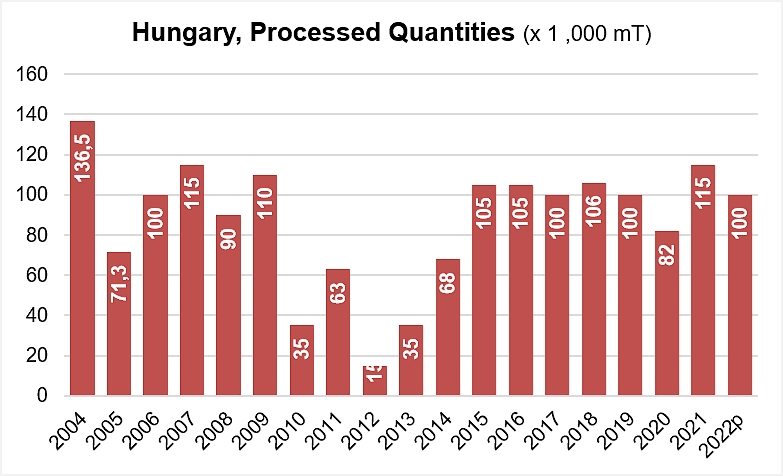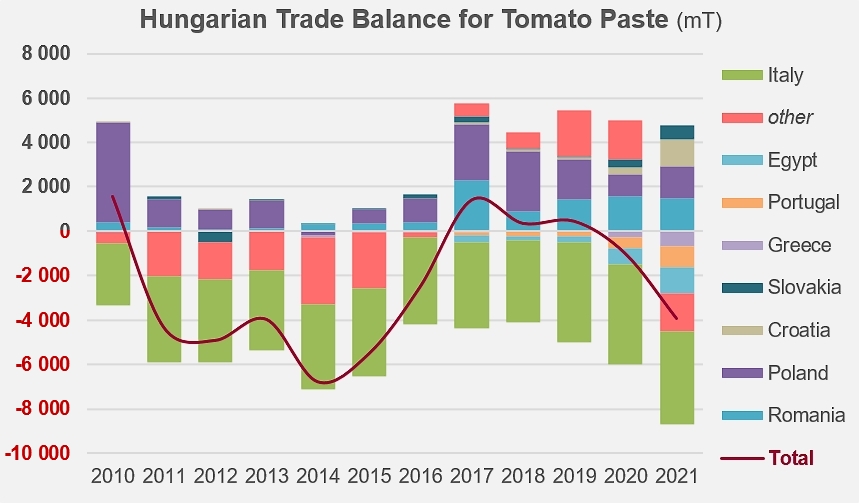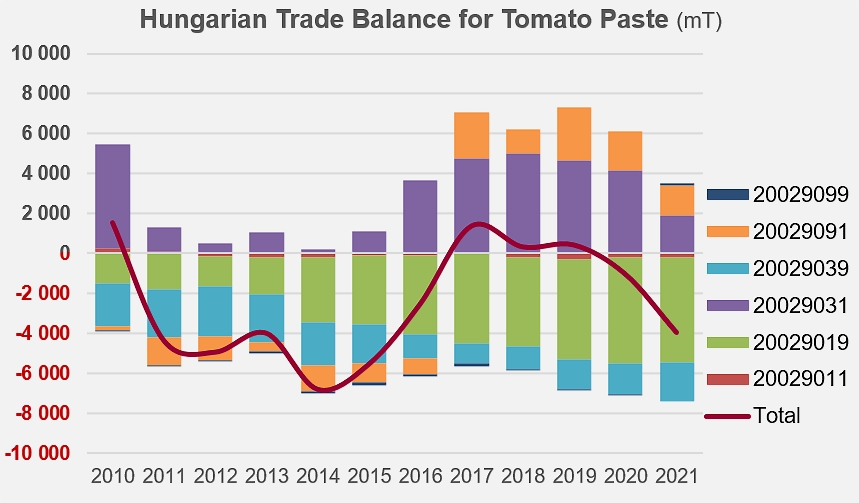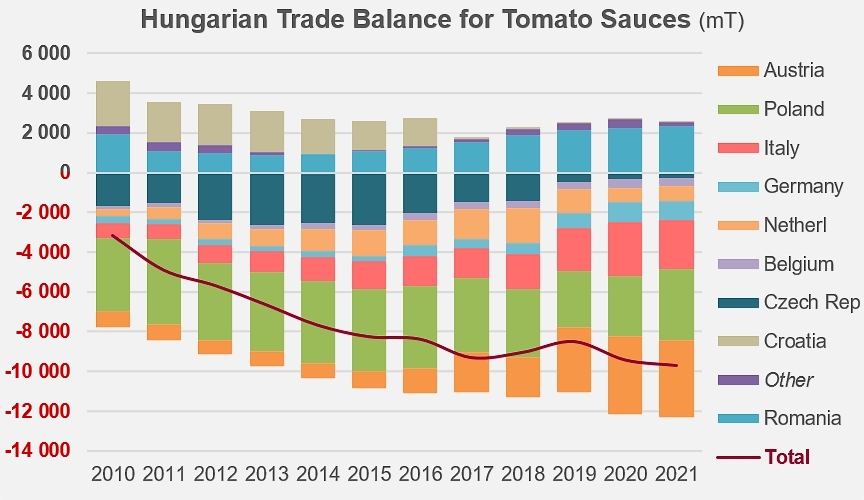At the intersection between Western and Eastern EU...
Emerging from a period of very slow activity between 2010 and 2014, the Hungarian processing tomato industry has processed an average annual quantity of just over 100,000 metric tonnes (mT) over the last eight seasons as a whole (2015-2021). It expects to again process about 100,000 mT of tomato in 2022.
In addition to processing carried out by Hungarian companies, the country imports various types of tomato products to meet domestic demand. The quantities imported have varied a lot over the last few years, depending on the results of annual crops, but overall, they remain quite low. In 2021, the quantities recorded from January to December amounted to 3,900 mT of concentrated purées, 3,700 mT of canned tomatoes and 9,700 mT of sauces and ketchup.
The period between 2010 and 2014 saw a rapid increase in the deficit of the Hungarian trade balance of tomato products, resulting in an increase in the amount spent on imports to around USD 20 million. The recovery of processing operations in 2014/2015 temporarily reduced this expenditure, which then gradually deteriorated again. In 2021, the value of the imports required to satisfy domestic consumption amounted to almost USD 24 million.
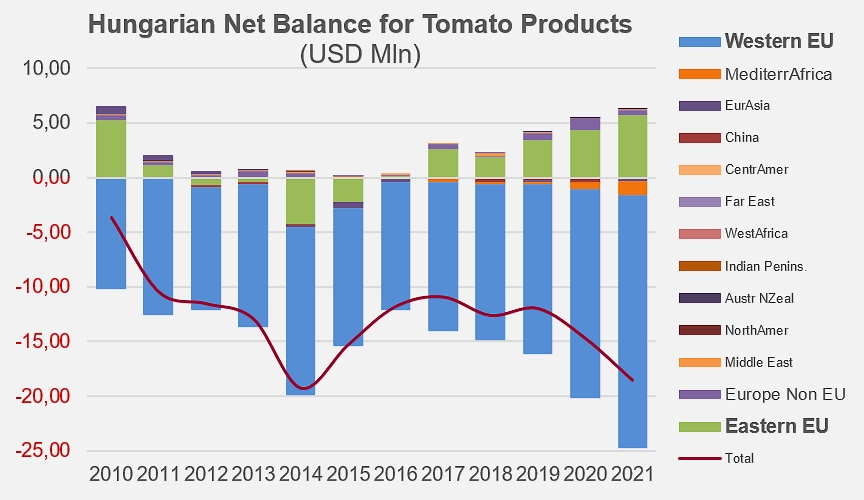
The situation of Hungary's tomato products trade sector can be summarized as a marked imbalance between imports from western EU countries and exports to eastern EU countries. This latter part of Hungarian trade involves flows of goods – mainly tomato pastes and sauces – sent to Poland, Romania or Slovakia, and some other countries known to import significant quantities of such products. Conversely, apart from Italy and to a lesser extent Portugal, Egypt and Greece, the list of the countries supplying the Hungarian market includes mainly countries with re-manufacturing industries, among which the Netherlands, Germany, Belgium and Austria figure prominently.
The category composition of imports highlights a chronic and significant dependence of the canned tomato sector and even more so of the sauces sector, which respectively accounted for almost 24% and 75% of Hungarian expenditure on average over the last three years. Imports of pastes, on the other hand, which grew strongly between 2011 and 2014, have lost ground to domestic production and accounted for only slightly less than 2% of average expenditure over the same period.
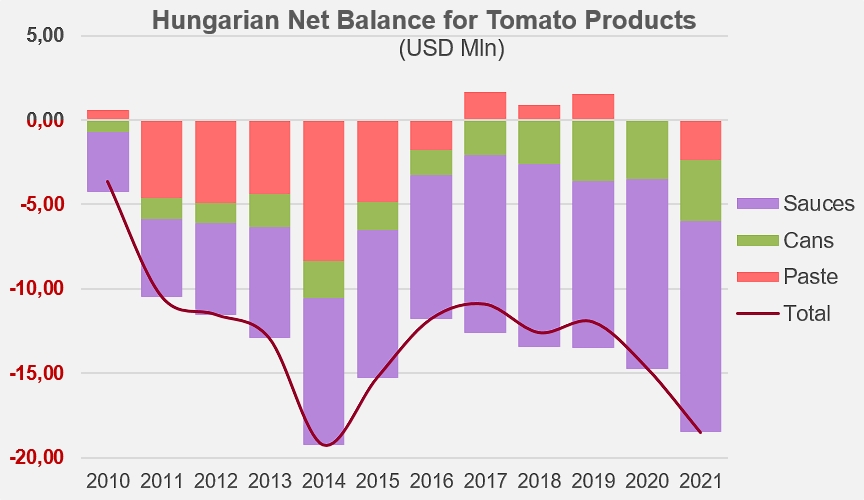
The total Hungarian demand for tomato products can be roughly estimated at around 110,000 metric tonnes of fresh tomato equivalent over the last six years. On this basis, the country's processing operators can be said to meet slightly more than 93% of domestic consumption needs.
The population of Hungary is around 9.7 million, but is currently decreasing.
Note:
The 15th World Congress on Processing Tomatoes will be held in Hungary in 2024. The official announcement was made on 25 March 2022 at the close of the 14th Congress, which was held online from San Juan by the Argentinian tomato processing industry.
Some complementary data
Evolution of the quantities processed by the Hungarian industry over the last two decades.
Evolution of the Hungarian tomato paste trade balance: The period running 2011 to 2016 recorded a clear trade deficit and, despite a significant improvement, the balance with Italy remains chronically negative.
The recovery of Hungarian operations after 2015 has mainly restored export flows of pastes under codes 20029031 and 20029091. However, the imbalance observed for products under codes 20029019 and 20029039 has continued and has been growing steadily since 2010.
Evolution of the Hungarian balance of sauces and ketchup: the sales of products to Romania and Croatia do not make up for the purchases made from operators in Austria, Poland, Italy, Germany, the Netherlands, etc.
Sources: TDM, WPTC




